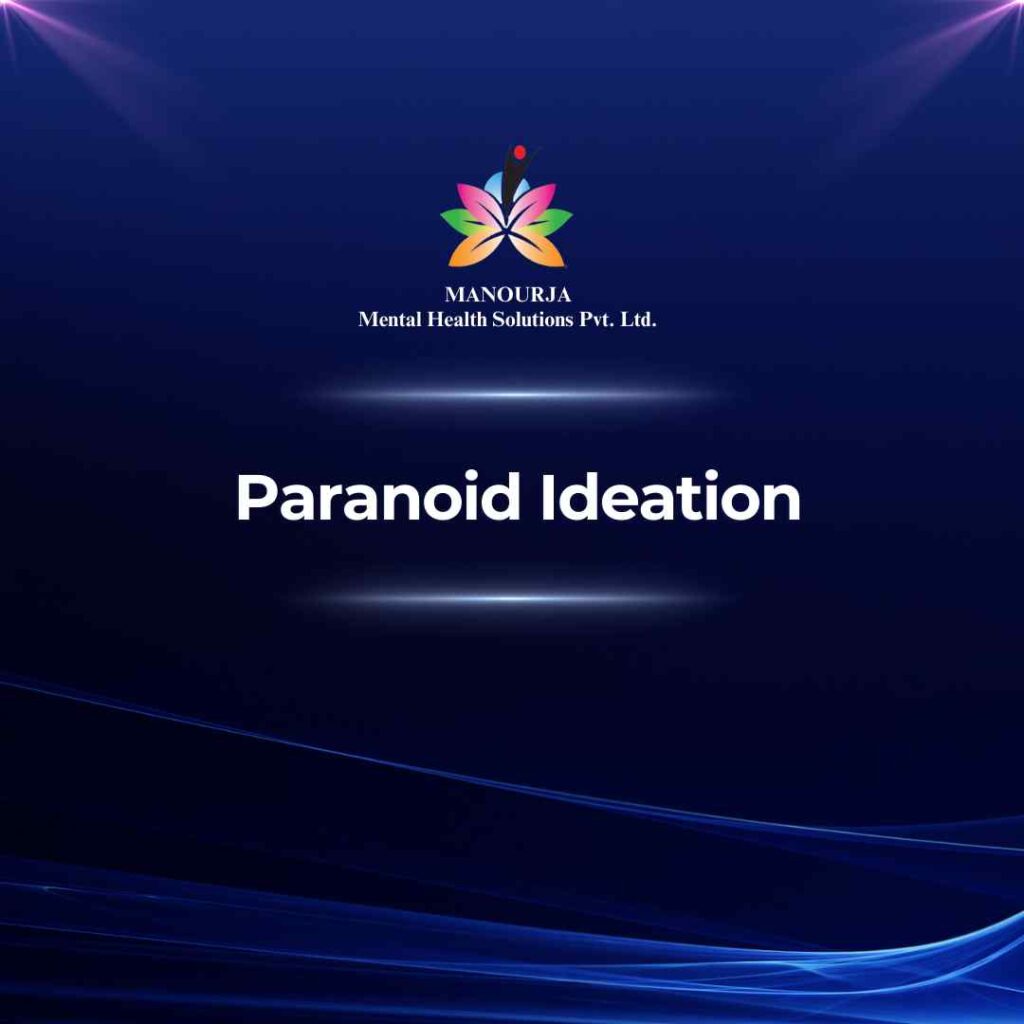Paranoid Ideation

“Paranoid ideation” refers to thoughts, ideas, or beliefs that are characterized by suspicion, mistrust, or a sense of persecution by others, without the presence of fixed false beliefs (delusions). Unlike paranoid delusions, paranoid ideation involves suspicious thoughts that may be transient or less firmly held but still significantly impact an individual’s perception of others and their surroundings.
Paranoid Ideation as a Sign and Symptom of Mental Illness
Paranoid ideation is a symptom seen across various mental health disorders, particularly those involving anxiety, mood disorders, and certain personality disorders. It can contribute to feelings of fear, distress, and impaired social interactions.
Mental Illnesses with Paranoid Ideation as Symptoms
Paranoid ideation can be present in several mental health conditions, including:
- Paranoid Personality Disorder: Individuals with this personality disorder often have pervasive mistrust and suspicion of others, leading to chronic paranoid ideation without meeting the threshold for delusions.
- Generalized Anxiety Disorder (GAD): Excessive worry and anxiety about various aspects of life can lead to paranoid ideation, where individuals may have persistent thoughts of potential harm or threats from others.
- Post-Traumatic Stress Disorder (PTSD): After experiencing trauma, individuals may develop hypervigilance and paranoid ideation, feeling constantly on edge and fearful of potential danger.
- Depressive Disorders: During depressive episodes, individuals may experience paranoid ideation related to feelings of worthlessness, guilt, or excessive self-criticism.
- Obsessive-Compulsive Disorder (OCD): OCD can involve intrusive thoughts related to harm or danger, which may contribute to paranoid ideation about potential threats or dangers in the environment.
- Substance Use Disorders: Intoxication with certain substances, such as stimulants or hallucinogens, can induce paranoid ideation as a temporary symptom.
Managing and Treating Paranoid Ideation
Treatment for paranoid ideation focuses on reducing distress, managing symptoms, and improving overall functioning:
- Cognitive-Behavioral Therapy (CBT): CBT techniques, such as cognitive restructuring and exposure therapy, can help individuals challenge and modify paranoid thoughts, reduce anxiety, and improve coping skills.
- Medication: Depending on the underlying condition, medications such as antidepressants, anxiolytics, or antipsychotics may be prescribed to target symptoms and improve symptom control.
- Supportive Interventions: Providing education about paranoid ideation, offering support groups, and involving family members or caregivers in treatment can help individuals manage symptoms and maintain stability.
- Psychoeducation: Educating individuals about the nature of paranoid ideation, its triggers, and effective coping strategies can empower individuals to better manage their symptoms and reduce distress.
Recognizing paranoid ideation as a symptom of an underlying mental health condition is essential for accurate diagnosis and effective treatment planning. Addressing these thoughts through comprehensive and individualized treatment approaches can help individuals achieve better mental health and overall well-being.
At MANOURJA, we believe in the transformative power of counseling. Our experienced therapists offer a safe and supportive space where you can explore your thoughts, emotions, and challenges. Through personalized counselling sessions, we’ll work together to develop coping strategies, build resilience, and achieve lasting positive change. Discover the path to a healthier, happier you with MANOURJA counselling services.
MANOURJA Rehabilitation Services
At MANOURJA, we’re dedicated to helping you in rebuild your life, after difficult times. Our rehabilitation services focus on understanding what you need to move forward, whether you’re recovering from addiction, trauma, or any psychological – social challenges. We create personalized plans, that are all about helping you, regain your strength and find hope again. With a caring team by your side, you’ll have the support to make real progress and take steps toward a brighter, healthier future.
